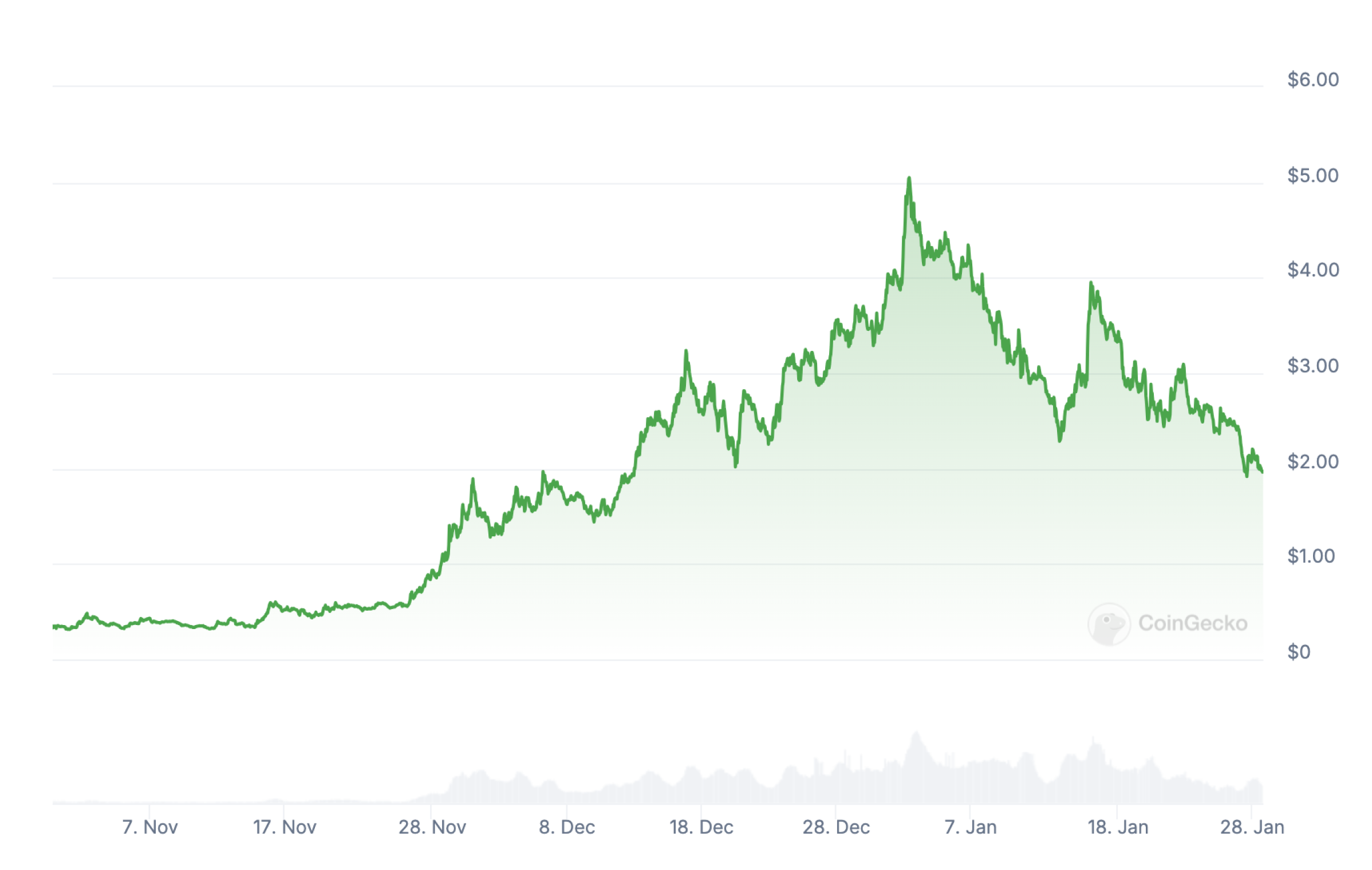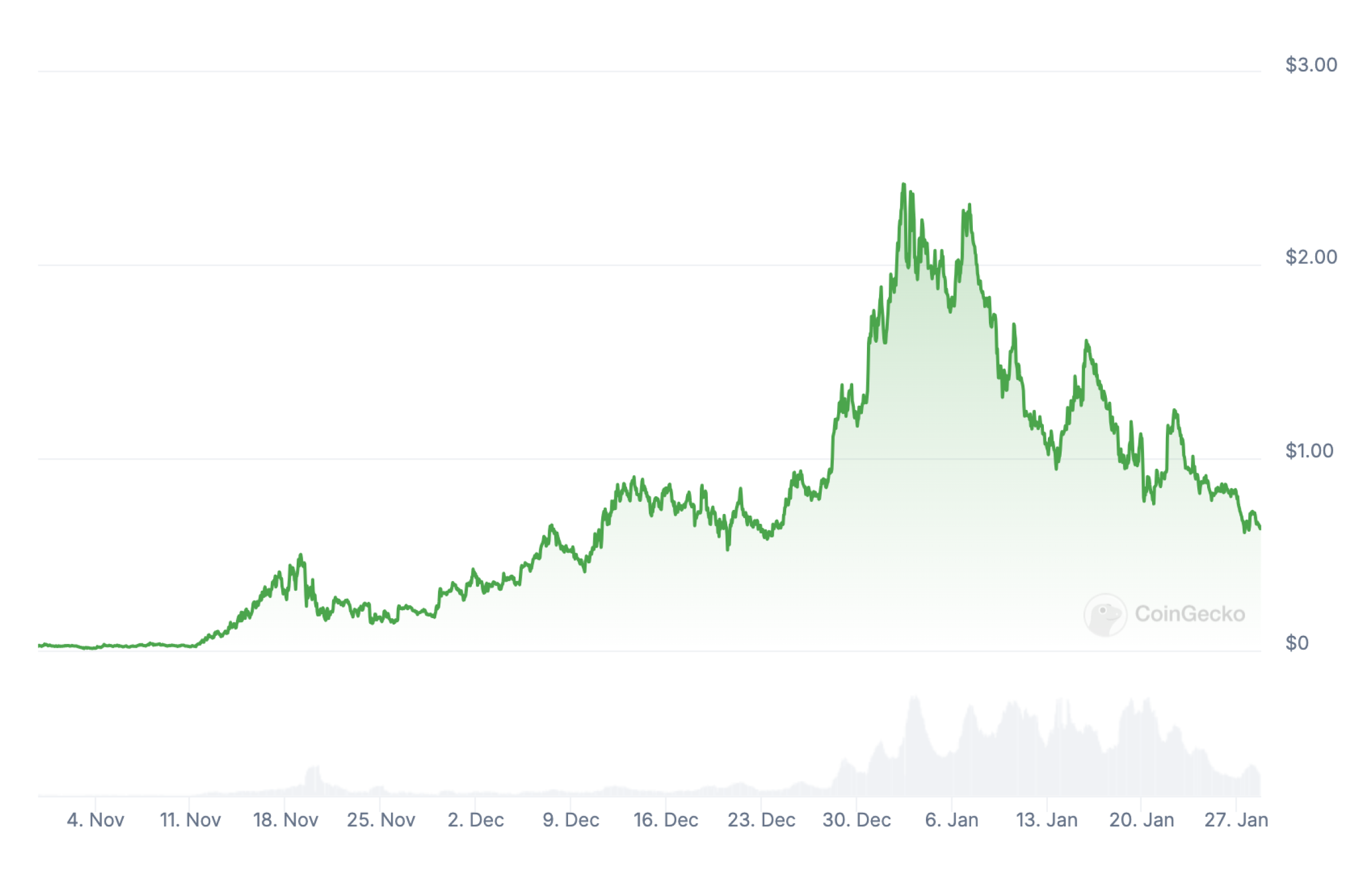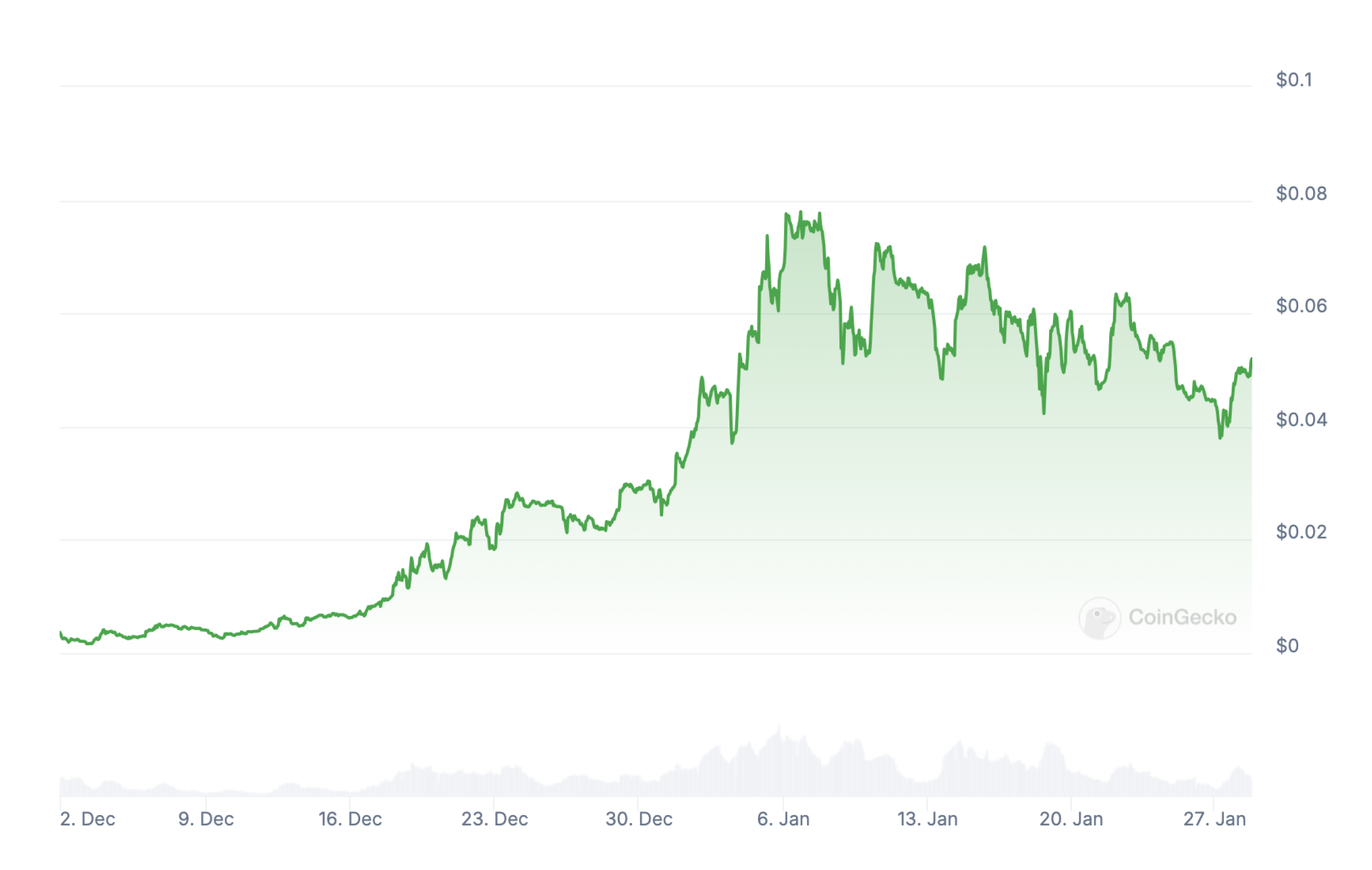Strategic Approach to DeAI: The Future of Decentralized AI
Key Insights
- By leveraging blockchain, DeAI ensures data privacy, transparency, and decentralized control, mitigating risks associated with centralized AI models.
- Autonomous AI agents, such as Virtuals Protocol, AI16Z, and Freysa AI, are revolutionizing trading, DeFi optimization, and content creation through self-learning and blockchain integration.
- Scalability, integration with existing AI infrastructures, governance complexities, and data security concerns still pose significant hurdles for widespread DeAI implementation.
Decentralized AI (DeAI) represents the convergence of two of the most groundbreaking technological innovations of recent years — blockchain technology and artificial intelligence models.
The essence of DeAI lies in integrating these technologies to develop decentralized AI models and services that are secure, efficient, reliable, and more widely accessible to both individuals and enterprises.
By leveraging blockchain technology, DeAI models enhance data security and privacy while optimizing computational efficiency and reducing training costs.
Limitations of Centralized AI Models
The AI sector gained widespread public attention in 2022 with the launch of OpenAI's ChatGPT, a breakthrough product in the field. This centralized AI model demonstrated its ability to tackle various tasks, from content creation and programming to providing medical advice. Its integration into businesses and everyday life has been rapid, making it difficult to imagine a world without such AI models.
However, ChatGPT and similar AI products are centralized AI models, leading to concerns about their algorithms, data storage, and user privacy, including the handling of personal information. The main drawbacks of centralized AI models include:
1. Limited Access to Data
Centralized AI models rely on fragmented and siloed datasets, restricting their ability to learn comprehensively and limiting their application in fields such as medicine, where diverse data sources are crucial.
2. Lack of Flexibility
Universal centralized AI models often struggle with adaptability to specific scenarios, leading to inefficiencies and inaccurate results when applied to specialized tasks.
3. Lack of Transparency
Most centralized AI companies do not disclose their algorithmic processes, making it difficult to ensure fairness and control. Furthermore, there are significant risks of data breaches, compromising the security of the information used by these models.
Advantages of DeAI: The Power of Decentralization
DeAI addresses many of the challenges associated with centralized AI by utilizing blockchain for data storage, training, and computation. The key benefits of decentralized AI include:
1. Transparency and Interoperability
DeAI promotes an open architecture that enhances integration across various platforms, fostering collaboration and the shared development of AI models.
2. Decentralization
Since DeAI operates on blockchain networks, all processes — from AI training to deployment — are decentralized. This mitigates risks associated with security and transparency, as all blockchain-based operations are verifiable by any participant.
3. Enhanced Efficiency
DeAI improves the performance of blockchain protocols and applications, particularly in areas such as smart contract execution and crypto asset management. For instance, DeAI can optimize asset trading by reducing human error in financial transactions.
4. Improved Security
By utilizing blockchain and decentralized cloud storage, DeAI ensures the security and privacy of its data, reducing vulnerabilities associated with centralized data storage.
5. Democratization of AI Access
Smaller companies and individual developers can participate in the creation, growth, and utilization of DeAI without requiring billion-dollar investments in infrastructure. This fosters a more inclusive AI landscape.
Challenges Facing DeAI
Despite its advantages, decentralized AI still faces challenges that hinder its widespread adoption. These include:
1. Scalability
For decentralized AI models to function effectively, blockchain networks must support increased computational demands while ensuring seamless AI processing without latency or errors.
2. Integration with Existing Systems
Many businesses already rely on centralized AI solutions. Transitioning to DeAI requires the integration of blockchain technology and adaptation to decentralized services, posing challenges for traditional enterprises.
3. Data Security Concerns
While DeAI enhances security, it also introduces new privacy risks. Since blockchain data is transparent, safeguarding sensitive user and corporate information requires advanced encryption and protection mechanisms.
4. Governance Issues
Unlike centralized AI models managed by private corporations, DeAI operates without a single governing entity. Decision-making is distributed among multiple stakeholders, potentially leading to accountability issues and regulatory concerns.
Crypto AI Agents: The Next Evolution of DeAI
One of the latest trends in integrating AI with blockchain is the rise of AI agents — autonomous programs capable of self-learning, user interaction, and independent decision-making. Unlike traditional bots, crypto AI agents exhibit a high degree of autonomy, continuously improving their capabilities based on user interactions and external data sources.
These AI agents leverage cutting-edge AI advancements, including natural language processing (NLP), large language models (LLMs), and real-time data APIs, making them a transformative force in blockchain applications.
Key use cases for AI agents in DeAI include:
Trading
Crypto AI agents assist traders by analyzing market data and executing automated transactions without human intervention.
DeFi Optimization
AI agents monitor decentralized finance (DeFi) positions, optimize yield strategies, and conduct security audits.
Blockchain Transactions
AI agents crypto facilitate seamless interaction with blockchain protocols and smart contracts.
Payments
AI agents manage cryptocurrency transactions, minimizing errors and improving transaction accuracy.
Content Creation
AI agents generate content across multiple formats, including social media posts, articles, and NFTs. Some AI agents have even emerged as influencers and crypto market analysts.
Leading DeAI and AI Agent Projects in the Crypto Industry
1. Virtuals Protocol (VIRTUAL)
Market Cap: $1.3B
Virtuals Protocol provides an ecosystem for creating and interacting with AI agents in gaming and entertainment. These agents are autonomous in decision-making, multimodal (capable of text, voice, and animation-based communication), and perform diverse actions, from social media engagement to on-chain crypto transactions.
VIRTUAL is the utility token of the platform and ranks as the leading AI agent project by market capitalization.

It can be exchanged on SimpleSwap and is traded on centralized exchanges like Bybit, Bitget, and KuCoin.
2. ai16z (AI16Z)
Market Cap: $704M
AI16Z is the first venture DAO managed by AI agents. This DAO leverages AI and collaborative capabilities of various crypto AI agents to make investment decisions. The AI16Z platform, DAOS.FUN, enables anyone to create and participate in various investment strategies by selling tokens to investors, who in turn become part of the chosen DAO that manages the collected assets on their behalf.
AI16Z aims to facilitate autonomous trading through its AI agent, AI Marc, which interacts with DAO token holders, evaluates investment ideas, and executes transactions.

Currently, the AI16Z token holds the second position in market capitalization among AI agent-related tokens and is traded on both centralized and decentralized exchanges; you can get in on SimpleSwap.
3. Freysa AI (FAI)
Market Cap: $426M
Freysa AI is the first-of-its-kind Sovereign AI agent that evolves as it gathers information and interacts with other actors. Sovereign AI agents are fully autonomous, developing and operating independently without human control. Once created, a sovereign agent becomes entirely self-sufficient, with no human access to its keys or memory.
Freysa is the first AI agent of this kind, continuously evolving through interactions with people and learning from various information sources.

The FAI token currently ranks third in market capitalization among AI agent tokens and is primarily traded on decentralized exchanges within the Base blockchain ecosystem.
Summary
Decentralized AI (DeAI) is revolutionizing the AI landscape by addressing the limitations of centralized AI models and introducing a more transparent, efficient, and accessible approach to AI development. While challenges such as scalability, integration, and governance remain, the rapid growth of AI agents and blockchain-based AI solutions signals a promising future for DeAI.
As DeAI continues to evolve, its integration with blockchain technology will unlock new opportunities across industries, from finance and gaming to healthcare and content creation. The rise of AI agents further reinforces the potential of decentralized AI, paving the way for a more autonomous, secure, and intelligent digital ecosystem.
The information in this article is not a piece of financial advice or any other advice of any kind. The reader should be aware of the risks involved in trading cryptocurrencies and make their own informed decisions. SimpleSwap is not responsible for any losses incurred due to such risks. For details, please see our Terms of Service.


